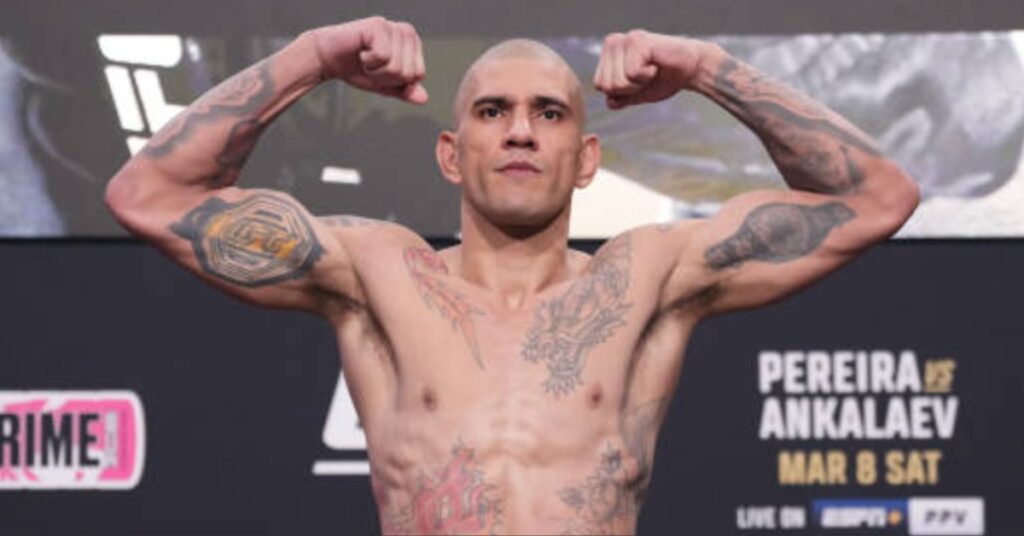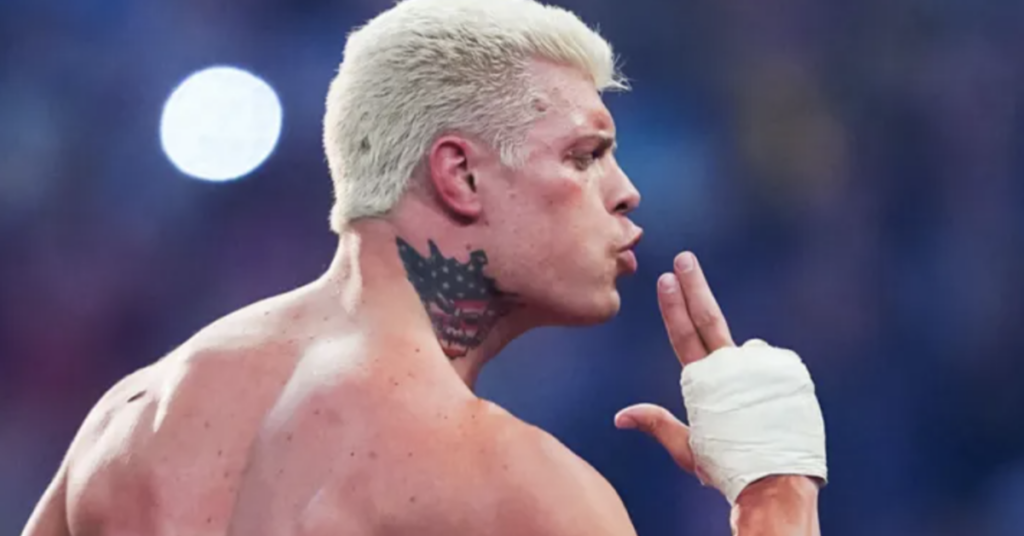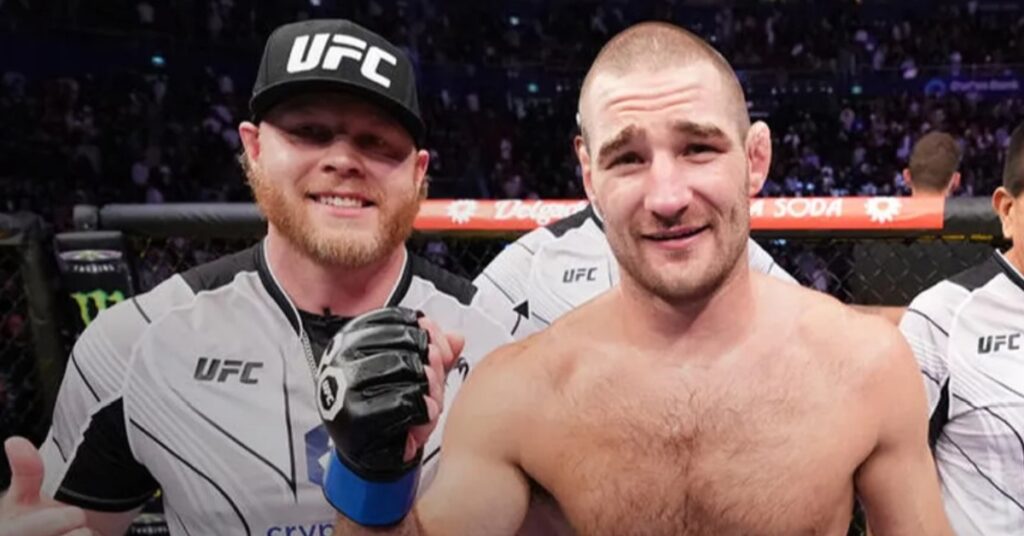Shill ‘Em All, Part 3: The ‘Almost Famous’ Fanboys of MMA Media

(“Jose Rosenberg, MMAFloorTurd.com. My question is for Johny Hendricks: Johny, will you please accept my friend request on Facebook?“)
To see the first two installments of Shill ‘Em All, click here for Part 1 and here for Part 2.
By Brian J. D’Souza
All serious music aficionados know the true-life origins of Cameron Crowe’s 2000 movie Almost Famous: Like the young protagonist of the movie, Crowe worked for Rolling Stone magazine, spending three weeks on the road with the Allman Brothers Band at the age of 18.
The ongoing theme of Almost Famous has to do with the loss of focus and objectivity 15-year old music journalist William Miller experiences when he gets up close and personal with fictional rock band Stillwater.
“Just make us look cool” the band tells Miller as they attempt to coerce favorable coverage that will further enhance their music career. This raises the question of personal bias in journalism — in our case, what happens when MMA reporters get too close to their subjects?
The first time I met Georges St-Pierre at the Tristar Gym in 2008, I was so in awe of his stature as a champion that I overlooked red flags concerning his management. I wrote a good story — a 2,000-word profile for a Canadian men’s magazine about his arc from bullied schoolboy to UFC champion. While I may have even elicited several good quotes about his childhood and time working as a garbage man, there were many grisly details that lay beneath the surface that I would discover in the coming years.
It’s easy for media members to project themselves onto MMA fighters. It starts with a delusion (“I could be him!”) and escalates into other false premises (“I am special, too!”). Numerous reporters have courted love affairs with fighters — both figurative and literal — and astute fans can spot the signs of favoritism from miles away: reporters using their platform to name-drop, rationalize a fighter’s flaws, or minimize criticism of said fighter.
To avoid falling into the trap of being overly-admiring of an MMA fighter is easier said than done — many video journalists like MMA HEAT’s Karyn Bryant have to stroke an interview subject’s ego in order to get them to open up. This is a typical habit of entertainment reporters; Bryant got her start in television working at MTV where celebrities are worshiped like gods. But this approach can become a problem when the ego isn’t the only thing being stroked, as was evidenced during Bryant’s now-infamous “motorboating” interview with Quinton Jackson.
That was an uncomfortable example of a fighter getting too friendly with an interviewer, and Bryant was quick to defend it on the basis that she likes Jackson on a personal level. Of course, that kind of touchy-feeliness can go the other way, when an interviewer is clearly thrilled to be in the same room as his favorite fighter:
Some media members, like CombatLifestyle.com photographer Tracy Lee, have made appearing in their own photos/videos partying or vacationing alongside MMA fighters the centerpiece of their portfolio. Narcissism and self-promotion are standard practices for many entertainment reporters — in television or video, your calling cards are your looks and persona. Despite this, the most in-demand personalities in combat sports remain those who are adept at interviewing and analysis, like the kind provided by Ariel Helwani, Joe Rogan, or Larry Merchant.
Often, prominent MMA fighters or personalities have a special relationship with a media outlet, like how CagePotato.com sponsors female MMA fighter Rose Namajunas, and has employed a variety of fighters as guest columnists. While this wouldn’t necessarily cause objectivity about those fighters to fly out the window, there would definitely be more considerate coverage given to their triumphs and failures.
On the flipside of the coin in terms of journalistic bias, many prominent athletes harbor grudges against media members who direct unfair criticism in their direction. It’s rare that fighters speak out due to their dependence on the media, but it does happen from time to time. For example, during the UFC 101 conference call to promote the BJ Penn vs. Kenny Florian main event, Penn vented anger towards MMA news sites MMAWeekly.com, Sherdog.com and MMAJunkie.com over what he perceived as negative coverage in the aftermath of his fight at UFC 94 against Georges St-Pierre.
“That’s just it — I don’t like how Sherdog, MMA Weekly, MMA Junkie — how all you guys — portrayed me after the GSP fight. I’m done working with you guys,” said BJ during the call.
Chief among BJ’s criticism of the media? His complaint to the Nevada State Athletic Commission had contained a line (inserted by BJ’s overzealous lawyer) about fighters ingesting a pill that could make their skin greasy, and BJ felt that the aforementioned news sites had put too much of their focus on that point rather than the clear evidence that St-Pierre had greased, inadvertently or intentionally, in their fight.
The access reporters have can cross over into cyber stalking and inappropriate behavior, as evidenced by Examiner.com’s Eric Holden. Female MMA fighters Stephanie Skinner and Cassie Robb gave an interview in May of this year where they provided texts from Holden that including messages like “ur kissy pics give me a boner,” “if I went down on someone and that was it, I feel like…they wouldn’t be fully satisfied,” and “have a threesome with a guy.” (You can see all of Holden’s cringe-worthy texts right here.)
Holden’s work often focuses on the sexy side of female fighters. When Bellator ring card girl Jade Bryce posted an Instagram of Holden buying her a slice of pizza, he wrote an entire blog post about the incident to glorify the moment and preserve it forever. Which brings up another message from Almost Famous: When you’re not objective, you’re no better than a groupie — someone trying to make your name off of the star with no discernible talents of your own.
(Eric Holden, “reporter.” / Photo via Examiner.com)
If MMA personalities like BJ Penn or Stephanie Skinner feel aggrieved by the way they are portrayed by the MMA media, they have limited options in terms of defending themselves. Lesser-known MMA figures would suffer if they didn’t do all the press available — sponsorships, ticket sales and new gigs are all reliant on getting your name out there. Even BJ Penn’s cut of pay-per-view sales could be diminished if he cut major news outlets out of a media tour promoting his fights.
Pro boxer, analyst, writer and trainer John “The Iceman” Scully has special insight into dissonance between the media and fighters, alluding to the lack of empathy the media shows as a result of their sheltered life experiences.
“I happen to know for a fact that many boxers secretly despise certain members of the media who are frequently disrespectful towards them in print,” Scully told me. “Many media members I’ve talked to seem to think it is just business and nothing personal but they need to understand that boxers take boxing very, very personal. It is such a deep part of who we are, unnecessary or seemingly tame attacks on us are often taken much more seriously than many realize. I’m not saying that writers should suck up to fighters and constantly write puff pieces, I’m just saying that the brashness they often show with their pens is unwarranted and is borne over time from the fact that they grow accustomed to witting things from within their office or home behind the computer without ever having to answer to it.”
The end result is usually hidden animosity towards MMA reporters that rarely gets sparked into flames visible to the public. Reporters can be oblivious to the resentment they cultivate.
As Scully relates in a poignant anecdote, “I’ll tell you something a former heavyweight champion personally told me about a very prolific writer who apparently, from what he wrote that same week in an article, thought he and this former champ were close buddies. The champ told me that ‘If I could get away with it I would push that m*****f***** down a flight of stairs.’”
The few times we’ve seen figures in the MMA world publically complain about their treatment by the media likely only represents the visible tip of the iceberg. Conversely, there are times when an MMA figure will say or do something that merits criticism, like being caught using performance enhancers or making misogynistic comments, and the media has to write something unflattering about them.
Perhaps the character of Lester Bangs from Almost Famous gave the most important advice that’s applicable to MMA journalists:
“You CANNOT make friends with the rock stars. That’s what’s important. If you’re a rock journalist — first, you will never get paid much. But you will get free records from the record company. And they’ll buy you drinks, you’ll meet girls, they’ll try to fly you places for free, offer you drugs…I know. It sounds great. But they are not your friends. These are people who want you to write sanctimonious stories about the genius of the rock stars, and they will ruin rock and roll and strangle everything we love about it.”
People like Dana White, the Fertittta brothers, and star fighters like GSP are the “rock stars” of the MMA universe. There certainly are perks like tickets, parties and paying gigs that can tempt MMA journalists — but nothing is given away freely in this game. “Quid pro quo” translates into “This for that” — in our case, the promotions, fighters and assorted personalities in MMA are entitled to coverage — but we as journalists have to work harder to ensure that what we write is fair, accurate and in the spirit of bettering the sport of MMA.
Above all else, if I’m in a building with an MMA fighter or promoter, and the elevator doesn’t work and no one else is around, I’ll be gracious and let them walk down the stairs first.
********
Brian J. D’Souza is the author of the recently published book Pound for Pound: The Modern Gladiators of Mixed Martial Arts. You can check out an excerpt right here.






